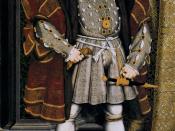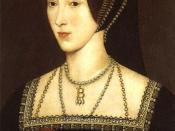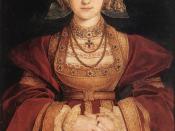Protestant Reformation of Catholic Church in Europe
The economic changes of the fourteenth and fifteenth centuries led the Catholic Church into much criticism involving its preoccupation with finances. The church was not being led by its noble's and high ranking church leaders, but instead more and more by the wealthy and powerful. High positions in the church were being sold to wealthy citizens with no regards to experience or seniority. Churches soon began filling with illiterate priests, including many with mistresses. Indulgences quickly became regularity and pardoned many sins for those who could afford them. This corruption was not overseen by all members of the church (mainly poor and middleclass) and complaints began accumulating. A man named Martin Luther finally brought the debasement of church ethics to full attention.
Martin Luther was a Catholic noble who emphasized faith and good works. With no intentions from separating himself from church, he published Ninety-five thesis that presented all the corruption within the present church.
The church did not agree and/or put up with Luther. He soon appeared before Charles V at Diet of Worms in 1521, where he was condemned from church and state. It was thanks to a German prince, who was not in favor of Charles V, to rescue the life of Luther and bring him to safety. It was there when Martin Luther would present his ideas of freedom in church. Freedoms from indulgences, freedom from rank or class, freedom from status, religion only based on faith. His words spread rapidly; the people throughout Europe heard and many began to follow his teachings and morals. Some joined Luther for their dislike to Charles V and many for his freedom from the strict Catholic Church. Peasants began fighting with the wealthy; Lutherans fought with the Catholics. Much bloodshed was created...


